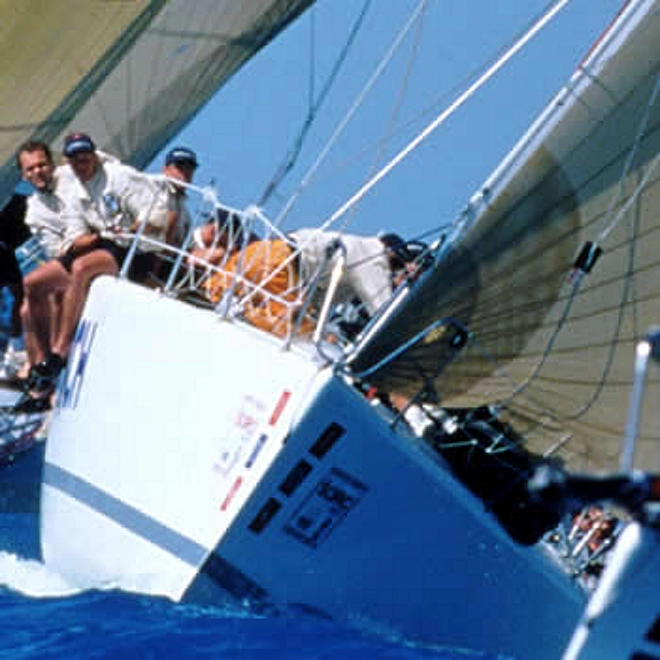No results found
FRS World Tour
Registration Insights
On the map below, click on the country that interests you and read through a brief description of the regulatory requirements.
Should you wish to receive more comprehensive information, click on the “Take off now!” link, provide us some information and receive an email from our team. We are looking forward to hearing from you!

The World Tour is only a small part of our Fund Distribution service portfolio, check out RegistrationInsights, an online tool that gives you a unique, comprehensive and up-to-date view on distribution requirements across more than 25 jurisdictions.
Below a list of all the countries:
Asia
Brunei Darussalam
Foreign collective investment scheme distribution is possible in Brunei Darussalam through public distribution or exemption regimes (e.g. case of offering to accredited investors).
China
Direct distribution of foreign funds directly to investors in China is not possible for the time being. However, Qualified Domestic Institutional Investor scheme has given foreign funds, where relevant, the possibility to be indirectly distributed in Mainland China.
Hong Kong
It is possible for a foreign fund to be distributed either publicly or using the exemption regime. If the fund only targets institutional investors or a small number of high net worth individuals, the exemption regime is a good alternative to public distribution considering the degree of complexity of the latter.
India
It is not possible to directly distribute foreign funds in India. We understand that the only possible way to market a foreign fund in India would be through a fund of fund structure, i.e., an India-based fund of fund, managed by an India Asset Management Company, investing prominently in units of a foreign fund.
Japan
Distribution within the framework of a private placement is considered the easiest option to distribute foreign funds in Japan in terms of the timeframe, requirements and costs. This market entry route requires foreign funds to meet certain eligibility requirements before notifying the private placement of a foreign fund to the Japan Financial Service Agency.
Malaysia
Distribution of European domiciled foreign funds in Malaysia are limited in the sense that only listed European funds have the possibilities to directly market their units/shares in Malaysia under the applicable regimes. We understand that distribution of non-listed European funds is only possible via a master-feed fund structure and the target investors can only be non-retail investors.
Pakistan
We understand that foreign funds cannot be registered in Pakistan for distribution on a cross-border basis.
Philippines
Foreign funds can be distributed in the Philippines without being registered with the Securities and Exchange Commission if the following conditions are met: (i) offer to fewer than twenty persons during a 12 month period or (ii) offer limited to qualified buyers (such as banks, insurance companies, investment companies, pension funds, etc.). Public distribution of foreign funds is not yet allowed.
Singapore
Public distribution is difficult as it is required to provide the Monetary Authority of Singapore with a lot of documentation and the registration process is quite long and expensive. The easiest market entry regime is either the exemption regime or private placement.
South Korea
Both public distribution and distribution limited to Qualified Professional Investors (QPI) trigger a registration with the Korean Financial Supervisory Service. QPI regime is much easier and less complex. In addition, in both cases, several eligibility criteria have to be met for both the foreign fund and its manager.
Taiwan
It is possible for a foreign fund to be either distributed publicly in Taiwan or through private placement. In both cases, it is required to appoint a local agent, but the duties of the local agent differs depending on the distribution route. In terms of marketing under private placement regime, a foreign fund manager may not make any general advertisement or public inducement to targeted “counterparties” otherwise, the placement will be deemed a public offering.
Thailand
There are no direct possibilities for foreign funds to market in Thailand other than as ASEAN CIS or through the ARFP regime. However, there are two indirect channels for distribution of foreign funds in Thailand.
Latin America
Argentina
Argentinian law contains a definition of a public offering applicable to local funds but no provision for the offering of foreign funds.
There are no legal provisions regarding either a potential exemption or private placement regime. Therefore, according to our understanding, it is not possible to distribute foreign funds in Argentina.
Brazil
The Brazilian market is very protectionist and is closed for investments outside Brazil.
The Comissão de Valores Mobiliários (CVM) confirmed to us that foreign funds cannot be either registered or offered to the public in Brazil. However, we also understand that local funds are allowed to invest overseas up to certain limits. Over the last years, the CVM has gradually increased the ability for local funds to allocate higher portions of their portfolios to foreign funds.
Chile
Private placement is available if the offer is made to qualified investors or the distribution is done to pension funds. No exemption regime is available. For public distribution, distribution to qualified and retail investors requires the inscription of the funds in the Foreign Securities Registry of the Comisión Clasificadora de Riesgo.
Colombia
It is theoretically possible to distribute foreign funds to retail and institutional investors in Colombia. The most interesting entry option is the distribution solely to pension funds.
Mexico
Distribution to qualified investors under certain conditions is possible through the exemption regime. Also, pension funds can invest in foreign funds under certain conditions. Public distribution may be possible for ETFs.
Panama
Foreign funds domiciled in a “recognized jurisdiction” as defined by the SMV (e.g., France) can benefit from an exemption regime to be distributed to institutional investors. Foreign funds not domiciled in a recognized jurisdiction (e.g., Luxembourg) are subject to rules applicable to Panamanian funds. For public distribution there is uncertainty around the outcome of the SMV concerning the distribution of foreign funds (approval given on a case by case basis).
Peru
An exemption regime is available for the distribution to local pension funds. In addition, private placement and public distribution regimes exist.
Uruguay
Foreign collective investment scheme distribution is possible in Brunei Darussalam through public distribution or exemption regimes (e.g. case of offering to accredited investors).
Middle East
Bahrain
Both public offering and private placement are, to our understanding, possible for foreign fund managers wishing to distribute their funds in Bahrain. Depending on the cases and where the foreign fund is domiciled a specific procedure applies: either filing, authorization or registration.
Dubai Financial Center
Only private placement is possible for foreign funds wishing to market their units in DIFC. The offers are to be made by a firm duly authorised by the Dubai Financial Services Authority. No authorisation of the fund itself is required.
Israel
Foreign funds may be distributed without the Israeli authority's approval through exemption regimes, by offering to an unlimited number of classified unitholders or to a maximum of 35 non-classified unitholders. Public distribution is as well possible for foreign funds, however many requirements are to be met to be approved by the Israeli authority.
Kuwait
Foreign funds can only be offered in Kuwait through private placement to professional investors by an entity licensed by the Kuwait authority. Specific requirements are to be met, and the Kuwait authority is to approve the distribution, as well as publish an announcement of this in the Official Gazette.
Lebanon
Private placement and public distribution regimes are both regulated by law. In both case, a notification to the Capital Market Authority is required. Private placement is quite limited (maximum of 20 professional investors). Regarding public distribution. the number of conditions to be met is quite high but there is no major blocking point. Many foreign funds are registered for public distribution in Lebanon.
Oman
Distribution through private placement in Oman is possible under certain conditions. Our understanding is that the distribution routes, namely case of exemption regime and public distribution, are not available.
Qatar(QFC)
Foreign funds can be offered in Qatar through both public offerings and private placements. For both types of offerings, foreign funds should be registered with the Qatar Financial Center Regulatory Authority, and the registrations are to be done by a locally licensed firm. Private placement offerings are only to be made to qualified investors.
Saudi Arabia
Foreign funds can be offered through an exemption regime if the investor has initiated the transaction without any marketing from the fund, and if the investor makes/has assets not less than 50 million Saudi Riyals. Foreign funds can as well be offered through private placement by a distributor if certain conditions are met, and the authority in Saudi Arabia is notified.
Türkiye
Both private placement and public distribution regimes are prescribed by law. However, in the light of the eligibility conditions for both regimes (and especially the one relating to the country of domiciled of the fund’s assets -> 80% of the AuM must be invested in securities of issuers resident in Turkey), it is our understanding that only a very limited number of funds could be eligible for distribution in Turkey.
UAE
Foreign funds can be distributed in UAE without the UAE authority's approval through the professional investor exemption regime. Foreign funds can as well be offered through private placement and public distribution by a local promoter, if certain requirements are met, and the distributions are approved by the UAE authority.
Other
Andorra
Public distribution is possible for foreign funds wishing to market their units in Andorra and the application must be made through a local distributor to the Andorra National Institute of Finance. To the best of our knowledge, private placement is not allowed in Andorra, however “passive” distribution does not require any registration of the foreign fund.
Australia
When marketing a foreign fund in Australia, the following potential obligations apply, depending on the type of the targeted type of investors and the way the foreign fund will be offered to them.
• register the foreign collective investment scheme;
• obtain an Australian financial services license (AFSL) to conduct financial business that would amount to market a fund;
• prepare an Australian specific Product Disclosure Statement (PDS).
In case retail distribution is possible, all of the 3 aforementioned requirements must be met, so the degree of complexity and cost is significant. As a result, the distribution to the large and fast-growing wholesale investors segment is more common, all the more as a PDS is not needed and it is possible to rely on an exemption to get an AFSL license. However, this relief regulatory environment is being reviewed by the regulator with a target date of 31 March 2020 for the implementation of a new foreign Australian Financial Service License.
Canada
To the best of our knowledge. when marketing a fund in Canada, we understand that there are 3 dimensions to take into account:
• Licensing of the dealer and/or adviser,
• Licensing of the fund investment manager, and
• Filing of a prospectus.
The easiest route to market a foreign fund is to rely on reliefs.
Curacao
There is no exemption or private placement regime to market foreign funds in Curacao. To be marketed to either institutional or retail investors, foreign funds must be licensed by the Central Bank of Curacao and Sint Maarten. The registration procedure is quite complex and the conditions for acceptance remain quite subjective. However, a lighter regime is available for foreign funds subject to adequate home country supervision (e.g. Luxembourg).
EU Countries
We also facilitate registrations in the EEA (European Economic Area) according to the UCITS and AIFMD passporting procedures. While this is not the focus of the World Tour, we would be more than happy to speak to you about our offering for the EEA as well. Do not hesitate to get in touch!
Guernsey
In Guernsey, only the entity promoting the fund must be licensed, there is not no need to have the foreign fund registered or notified for marketing. There are 3 routes for an entity to get licensed to carry out promotion of a fund in Guernsey: exemption regime, need of notification (need to file a Form EX or Overseas form) or full licensing. The appropriate route depends on the target investors and the domicile of both fund and distributor.
Isle of Man
The procedure to publicly distribute foreign funds in Isle of Man is simplified for retail funds domiciled in Jersey, Guernsey, UK, Luxembourg and Ireland. Recognition of funds domiciled outside those jurisdictions is given on a case-by-case basis. There is only one way to be exempted from any notification procedure, which is the case of foreign funds placed to a maximum of 50 investors under private arrangements, but this option is not the most suitable one for foreign UCITS.
Jersey
In general, “COBO consent” from the JFSC is required to circulate a prospectus of a foreign fund in Jersey. However, under certain conditions, the fund may rely on exemptions due to the fact the offer is valid in the UK or Guernsey or made to a restricted number of well informed investors.
Mauritius
There is no private placement regime neither any type of exemption regime for foreign CIS. However, recognition for public distribution is possible but both the procedure and requirements remain unclear. Besides, the recognition process is assessed on a case-by-case basis.
Nigeria
Distribution of foreign funds to the public in Nigeria is possible under certain conditions. Our understanding is that other distribution routes, such as private placement and exemption regime, are not available.
South Africa
An exemption regime is in place but it is extremely limited (distribution to a restricted circle of individuals with a common interest who receive the invitation in specific circumstances which can be regarded as a domestic or private business venture). For public distribution, foreign investment funds must be approved by the FSCA and appoint a local manager or establish a representative office is required. Many foreign funds are registered for public distribution in South Africa.
Switzerland
Our understanding is that some non-public distribution routes, such as exemption regime or private placement, are available. It is possible to publicly offer EEA UCITS in Switzerland to non-qualified investors based via an authorization process. An offer of EEA AIF to qualified investors is possible and does not require authorisation.
USA
In the USA, at least 2 main regulations must be taken into consideration when planning to market a foreign in the US: 1) the 1933 Act regulating the offering of securities and requires transactions registrations, and 2) the 1940 Act governing the activities of an “investment company” as locally defined. Based on these 2 regulations, public offering of offshore funds in the U.S. is not possible. However, for each relevant regulation, exemptions or private placement regimes may apply. Please note that a relief under one of the two main regulations does not lead to a relief under the second one. Also, it should be noted that if the foreign fund were to accept US Persons, the fund manager would be subject to registration as an “investment adviser” under the US Investment Advisers Act of 1940, as amended, unless an exemption could apply.
Zambia
There is neither exemption regime nor private placement as such in Zambia. Distribution requires the prior approval of the SEC to market a foreign collective investment scheme in Zambia. A local representative will have to be appointed. There is registration package to submit to the SEC.
Did you find this useful?
Thanks for your feedback
If you would like to help improve Deloitte.com further, please complete a 3-minute survey
Your feedback is important to us
To tell us what you think, please update your settings to accept analytics and performance cookies.



